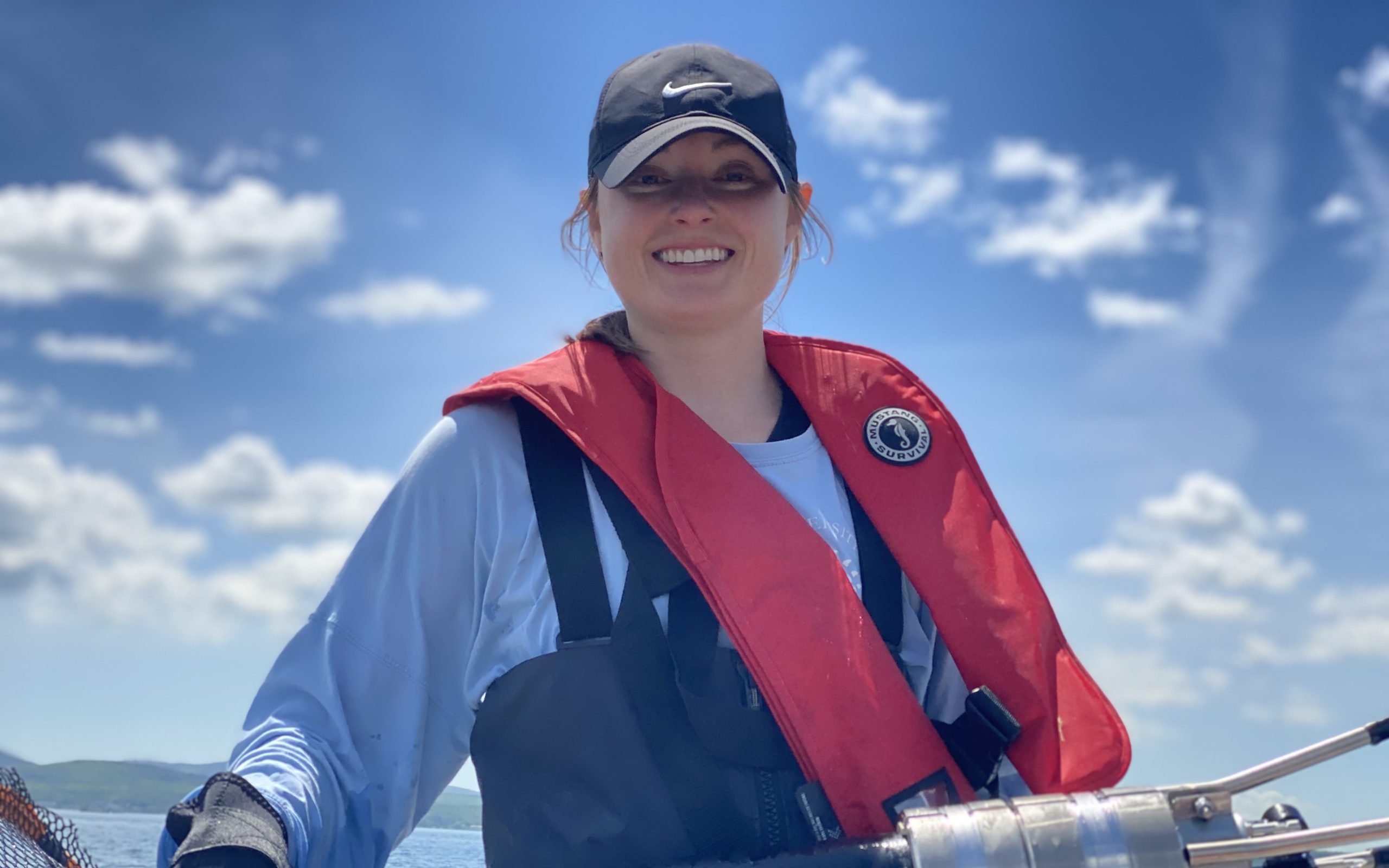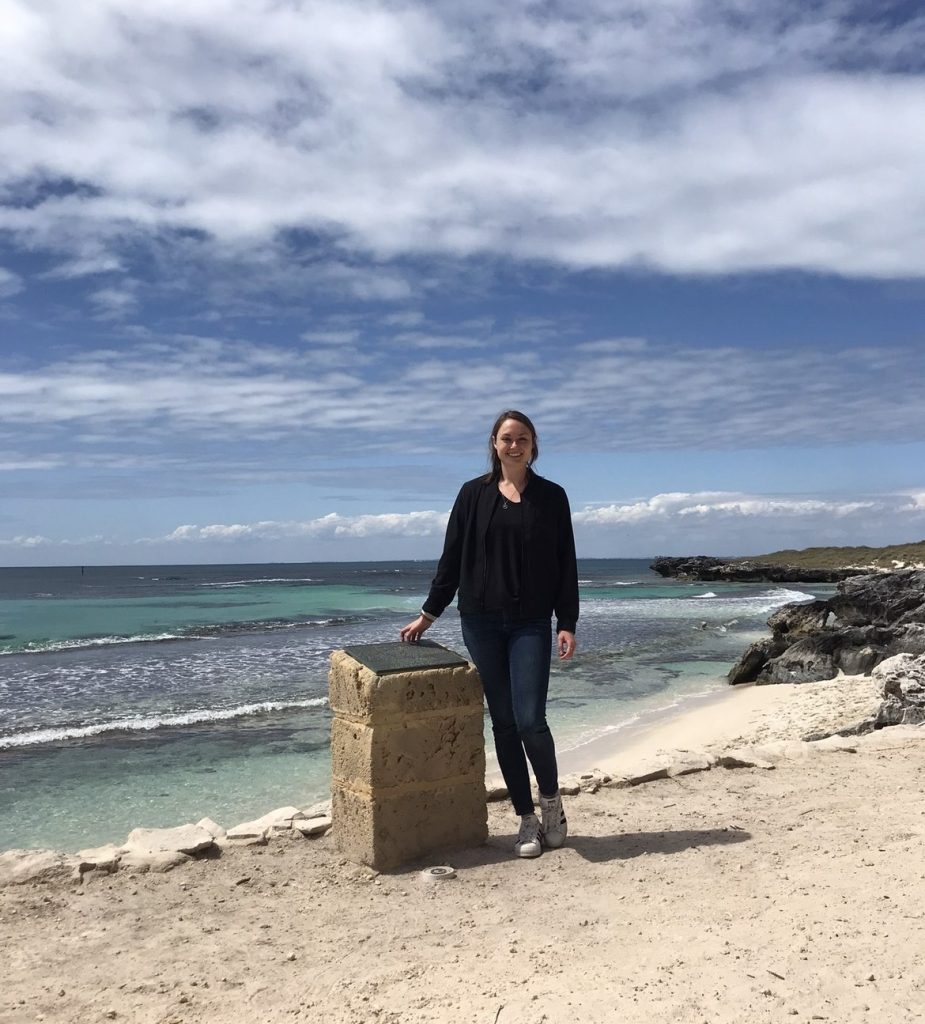
Taylor Spencer: Ten Years and Counting – How UMaine Shaped My Passion for Protecting Maine’s Coastline
One of my mom’s favorite jokes is that she has recurring dreams about me staying at the University of Maine forever, pursuing an endless stream of PhDs. Her subconscious ruminations are not completely unfounded, as I started my bachelor’s degree at UMaine back in 2014, and 10 years later I’m still here, still as passionate as ever about learning and the environment. I am currently a doctoral candidate in my fifth year of the Civil and Environmental Engineering PhD program, but finally there is an end in sight, with my projected graduation date in the summer of 2025.
Born a Mainer, I was initially drawn to UMaine because of its location. I feel a deep connection to this state, particularly to its coastline which is not only a source of beauty and vibrant life, but also serves as an essential component of our state’s economic stability. During my undergraduate career, I found a passion for water resources and sustainability, and I became intrigued by the idea of conducting research to answer questions I had about water quality and management in the environment. Having found an incredible mentor in one of the department’s faculty, Dr. Lauren Ross, I decided to pursue a master’s degree at UMaine under her advisement.
Prior to my master’s degree, I had been working part-time as a structural research intern at the Advanced Structures and Composites Center (ASCC) on campus. When I would give tours of the ASCC to prospective students and visitors, I would always find myself lingering longest in the W2 (the Alfond W2 Ocean Engineering Laboratory), mesmerized by the capabilities of the facility to generate full-scale ocean waves. When I heard of the opportunity to work with Dr. Ross on a project in the W2 lab, it was an easy decision to transition from my role as an undergraduate intern to a graduate research assistant, focused on coastal engineering. My project involved collaboration with engineers and staff at the ASCC as well as engineers from the Army’s Engineering Research and Development Center’s Coastal Hydraulics Laboratory to conduct the first theoretical experiment in the W2. This experiment, which aimed to understand how wind modifies ocean waves to help inform wave forecasting models, only further sparked my interest in coastal environments and the processes happening within them. Considering my love for Maine and for the coast, it was another easy decision to stay at UMaine after my master’s and continue working with Dr. Ross in pursuit of a PhD. Only this time, I knew I needed to get out of the lab and onto the water.
In general, my doctoral research focuses on understanding how climate- and human-induced changes are impacting our coastal environments, and how we can use this scientific understanding to inform the future management of these areas. With the Gulf of Maine warming at an unprecedented rate, Maine is a prime example of a coastal area facing novel and worsening water quality issues, like bacterial pollution, harmful algal blooms (HABs), and microplastic pollution. Water quality hazards like these are forcing local managers like the Maine Department of Marine Resources (MEDMR) to make more frequent and expansive closures of Maine’s coastline to economic activities like shellfish harvesting, fishing and aquaculture. Not only are these closures detrimental to Maine’s economy, which relies heavily on its fishing industry, they are also devastating to those who rely on the water’s resources for their livelihoods. Motivated by these impacts, my PhD work aims to understand the susceptibility of Frenchman Bay, located to the northeast of Acadia National Park on Mount Desert Island, and other similar systems worldwide to water quality hazards. I have been working to understand and help advance our ability to better predict ocean circulation patterns and the way in which they transport material, like HABs, microplastics, and bacterial pollution. My work utilizes numerical models and field data collection, which involves measuring water quality metrics like salinity, temperature, HAB and nutrient data with instruments and water samples. My research team and I have spent several summers going out on the boat weekly to collect this data in Frenchman Bay to establish baseline water quality conditions in the region. With this understanding, we can help local managers by informing monitoring and management practices surrounding water quality events. A major outcome of our research has been the development of an online publicly accessible, two-day simulation of particle movement in Frenchman Bay, which can be used to help local managers and community members begin to understand the way in which materials like HABs are moving in the ocean water.
My passion for the marine environment and the importance of it particularly to Maine’s communities, economy, and the sustainability of our food system has only strengthened over the past decade. As my graduation date approaches, I’m thinking ahead about how I can build a career to continue to support the state of Maine and its people, and continue to help to preserve our beautifully delicate coastal environments.

